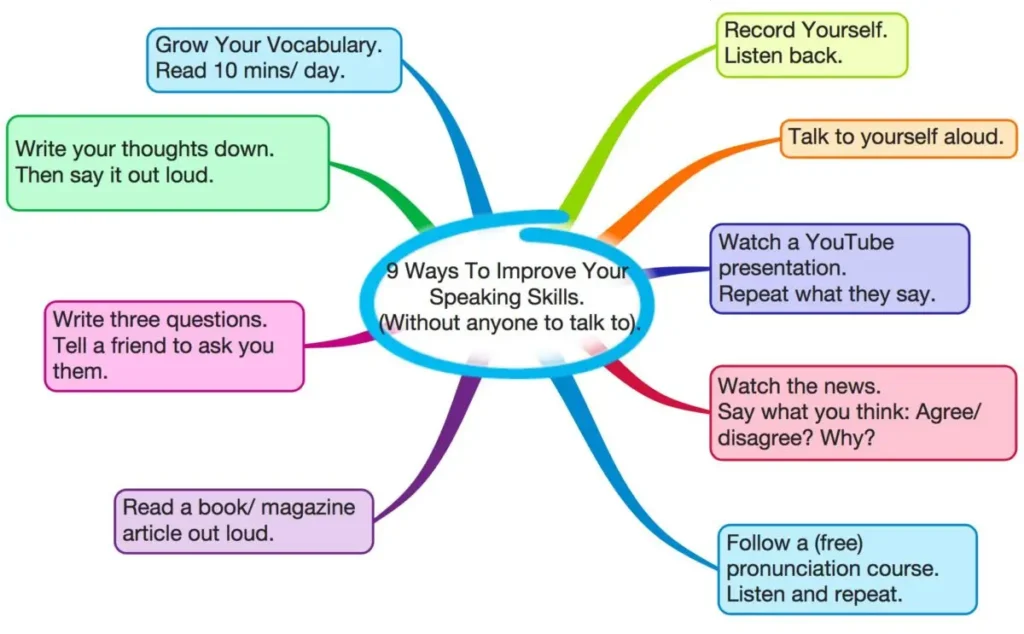Learning English as a beginner can feel daunting, but with the right approach and resources, you can build a strong foundation and gradually become proficient. This guide covers essential steps, tips, and tools to help you learn English effectively and confidently.
1. Why Learn English?

English is one of the most widely spoken languages in the world, making it a valuable skill for:
- Career Advancement: Many global companies require English proficiency.
- Travel: English helps in communicating across various countries.
- Education: Most academic resources are available in English.
- Cultural Understanding: Access to books, movies, and global media.
2. Getting Started: The Basics of English
The Alphabet
Start with learning the 26 letters of the English alphabet, including their pronunciation.
Basic Pronunciation
Learn the sounds of vowels and consonants:
- Vowels: A, E, I, O, U
- Consonants: The other 21 letters
Simple Words and Phrases
Familiarize yourself with common phrases:
- Greetings: “Hello,” “Good morning”
- Polite expressions: “Thank you,” “Excuse me”
- Questions: “How are you?” “Where is…?”
3. Building Vocabulary
Learning English for Beginners can feel daunting, but with the right approach and resources, you can quickly build a strong foundation. Starting with the basics, such as the alphabet and essential vocabulary, is a great way to get familiar with the language. Over time, you will gain confidence in grammar and sentence structure, making it easier to express yourself.
Daily Words
- Start with everyday objects and actions (e.g., “book,” “eat”).
- Use flashcards or apps like Anki or Quizlet.
Thematic Vocabulary
- Focus on themes like family, food, work, or hobbies.
- Use visuals to connect words with their meanings.
Word Families and Synonyms
Learn variations of words:
- Example: “happy,” “happier,” “happiest”
4. Mastering Grammar
Basic Sentence Structure
English sentences follow a Subject-Verb-Object (SVO) order:
- Example: “I (subject) eat (verb) apples (object).”
Tenses
Focus on present, past, and future tenses:
- Present: “I eat.”
- Past: “I ate.”
- Future: “I will eat.”
Articles and Prepositions
- Articles: “a,” “an,” “the”
- Prepositions: “in,” “on,” “at,” “by”
5. Developing Listening and Speaking Skills

Listening Practice
- Listen to podcasts or audiobooks for beginners.
- Watch movies or shows with subtitles.
Speaking Practice
- Repeat after native speakers.
- Practice with language partners or tutors (e.g., on platforms like iTalki).
Pronunciation Tools
Use apps like Forvo or Google Translate for pronunciation help.
6. Improving Reading and Writing Skills
Reading
- Start with children’s books or graded readers.
- Highlight new words and look up their meanings.
Writing
- Practice writing simple sentences.
- Keep a journal to record your daily activities in English.
7. Essential Tips for English Learners
- Set Goals: Define what you want to achieve and by when.
- Be Consistent: Practice daily, even for a short time.
- Don’t Fear Mistakes: They’re part of the learning process.
- Use Technology: Leverage apps, websites, and online courses.
- Immerse Yourself: Surround yourself with English through media, conversations, and labels.
8. Useful Resources for Beginners
Apps and Websites
- Duolingo: For vocabulary and basic grammar
- BBC Learning English: For structured lessons
- HelloTalk: For practicing with native speakers
Books
- “English Grammar in Use” by Raymond Murphy
- “Oxford Picture Dictionary”
YouTube Channels
- English Addict with Mr. Steve
- English Addicts by Learn English with Emma
9. Common Challenges and How to Overcome Them
Challenge: Fear of Speaking
- Solution: Start with short, simple sentences and practice in a non-judgmental environment.
Challenge: Remembering Vocabulary
- Solution: Use mnemonics and practice words in context.
Challenge: Grammar Confusion
- Solution: Focus on understanding one concept at a time and practice frequently.
10. FAQs About Learning English
How long does it take to learn English?
It depends on your current level, the time you dedicate, and your goals. With consistent practice, basic fluency can be achieved in 6-12 months.
Can I learn English on my own?
Yes! Use online resources, books, and apps. However, interaction with speakers can accelerate your progress.
What’s the best way to improve my accent?
Listen to native speakers and mimic their pronunciation. Tools like Speechling can help.
How can I stay motivated?
Set achievable milestones, track progress, and celebrate small victories.

